Papers & Publications
Beyond Secular Democracy: Religion, Politics, and Modernity
The presumed relationship between secularism and democracy is precisely that, presumed, argues Jeremy Menchik, CGCM faculty associate, in a recent journal article challenging common convention.
Menchik’s article, entitled “Beyond Secular Democracy: Religion, Politics, and Modernity,” was published in the July 2018 edition of International Studies Review.
From the abstract of the article:
This review essay synthesizes fifteen years of scholarship challenging the presumed relationship between secularism and democracy—that state secularism provides the normative or institutional baseline for modern governance. The idea that states and societies become more secular as they develop economically is no longer supported by most social scientists, including its original proponents. Sociologists and anthropologists have increasingly studied secularism as a project, rather than a teleological process embedded in modernization, and the new scholarship on “comparative secularisms” demonstrates that the manifestations of secularism are complicated and varied. Despite these advances, the new scholarship suffers from insufficient attention to the measurement challenges posed by the diverse content of religion. And while scholars continue to debate the content and characteristics of our secular age, all of the recent scholarship highlights important differences between traditional and modern religion. In view of the current state of the literature, this essay lays out an agenda for research on religion and modernity, or on modernization without secularization.
Jeremy Menchik’s research interests include comparative politics, religion and politics, Southeast Asia, and the Middle East. His first book, Islam and Democracy in Indonesia: Tolerance without Liberalism (Cambridge University Press, 2016) explains the meaning of tolerance to the world’s largest Islamic organizations and was the winner of the 2017 International Studies Association award for the best book on religion and international relations. He has received numerous awards and fellowships for teaching and research, and his work has appeared in the academic journals Comparative Studies in Society and History, Comparative Politics, International Studies Review, Politics and Religion, and South East Asia Research as well as in The New York Times, The New York Review of Books, The Washington Post, Christian Science Monitor, The Wall Street Journal, and USA Today.
Soft Separation Democracy
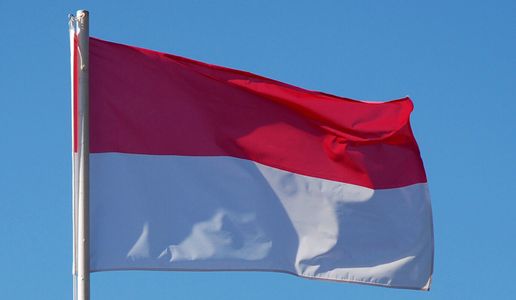 Many countries have created a "soft separation" between church and state rather than a wall as in the U.S. Jeremy Menchik, CGCM faculty associate, published a recent journal article examining the phenomenon.
Many countries have created a "soft separation" between church and state rather than a wall as in the U.S. Jeremy Menchik, CGCM faculty associate, published a recent journal article examining the phenomenon.
The article focused on states where there is religious education in state schools, significant financial support for religious traditions, limitations on the freedom of nontraditional faiths, and where public opinion favors strong support for religion in public life and state policies. These states–Bulgaria, Greece, Romania, India, Indonesia, and Switzerland–demonstrate the need for scholars of democracy to look beyond secularism as the normative or institutional baseline for modern governance.
Menchik’s article, entitled “Soft Separation Democracy,” was published in Politics and Religion on June 26, 2018.
From the abstract of the article:
How do nonsecular democracies govern religion? Despite two decades of research on the many ways that church and state overlap in modern democracies, scholars lack an adequate answer to this question. Many consolidated democracies have a soft separation between church and state rather than a wall. These are not defective versions of democracy, but rather poorly understood institutional arrangements. To remedy this lacuna, this paper investigates institutional arrangements in six consolidated democracies with a soft separation between church and state: Bulgaria, Greece, Romania, India, Indonesia, and Switzerland. After describing the institutional workings of these states, the paper develops hypotheses for the origins of soft separation democracy as well as addressing the challenges of this form of government. The paper concludes by suggesting three other potentially fruitful lines of analysis as well as elucidating the implications of soft separation democracy for U.S. foreign policy.
Jeremy Menchik’s research interests include comparative politics, religion and politics, Southeast Asia, and the Middle East. His first book, Islam and Democracy in Indonesia: Tolerance without Liberalism (Cambridge University Press, 2016) explains the meaning of tolerance to the world’s largest Islamic organizations and was the winner of the 2017 International Studies Association award for the best book on religion and international relations. He has received numerous awards and fellowships for teaching and research, and his work has appeared in the academic journals Comparative Studies in Society and History, Comparative Politics, International Studies Review, Politics and Religion, and South East Asia Research as well as in The New York Times, The New York Review of Books, The Washington Post, Christian Science Monitor, The Wall Street Journal, and USA Today.
Business and Mission in 19th Century Africa
 The "Impact of Business Practices and Ethos on Mission," cannot be ignored, Nimi Wariboko argues in his recent publication on "Liverpool Merchants in 19th-century Niger Delta." It is an extension of his ongoing work on the intersection between Christianity and economics.
The "Impact of Business Practices and Ethos on Mission," cannot be ignored, Nimi Wariboko argues in his recent publication on "Liverpool Merchants in 19th-century Niger Delta." It is an extension of his ongoing work on the intersection between Christianity and economics.
Call for Papers: Christianity in India
Call for Papers for a Double-volume Special Issue of Nidān
The bi-annual, peer-reviewed and open access Journal “Nidān: International Journal for Indian Studies”, published from the University of KwaZulu-Natal, Durban is pleased to announce a double-volume special issue on Christianity in India, to be published in July and December 2019 respectively. We elicit 8000 to 10,000 word-long original research articles on Christianity in India from scholars of different disciplinary backgrounds, using a variety of methodological approaches or a combination thereof, including anthropological, sociological, historical methods and literary analysis.
Christians constitute approximately 3% of India’s population and self-define their identity and devotional practices in a variety of cultural, vernacular and regionally specific ways. This is not only because Christians are historically dispersed across India and the Indian diaspora, but also because conversions were concentrated around diverse cantonment cities and towns during the colonial period in India, known for vernacular missionary activities. Asserting alternative cultural identities in accompaniment to Christianity such as caste-status and regional or vernacular belonging influenced Christian devotional practices and led to their representation within the public domain as a diverse and hybrid group.
In our present double-volume issue on Christianity in India, we elicit original research papers (between 8000 and 10,000 words) that focus on the emotions of the Christian self and conversion, Christian devotional and identity formation in India and the representation of Indian Christianity within the public domain from an anthropological or historical/ literary perspective. Contributors for the special issue would ideally introspect on questions such as caste and conversion, Indian Christianity within the diaspora, vernacular expressions of Christian devotion, regional identities formed through Christianity (such as in the case of Goa or the North-East) and the representation of Indian Christianity within the public domain (both anthropological and historical). I am also interested in academic introspection about Indian missions and Christianity that emerges from other missions across the world.
Those interested in contributing, please email an abstract of up to 500 words with author institutional details to Deepra Dandekar (deepradandekar@gmail.com) by August 15th, 2018. Once approved, original research articles (8000 – 10000 words) should be emailed to Deepra Dandekar by November 30th, 2018for the July 2019 volume. For the December 2019 volume, the deadline for article submission is April 30th, 2019.
Journal Editor: Professor P. Pratap Kumar
School of Religion, Philosophy and Classics
University of Kwa-Zulu Natal, Durban
penumalak@yahoo.com
https://journals.co.za/content/journal/nidan
Guest editor for the special issue: Deepra Dandekar (Ph.D.)
Researcher, Center for the History of Emotions, Max Planck Institute for Human Development, Berlin.
deepradandekar@gmail.com
https://www.mpib-berlin.mpg.de/en/staff/deepra-dandekar
Testimony and Fellowship
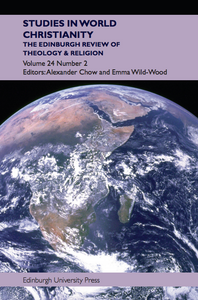 The East African Revival emphasized the so-called conversion experience, including an individual's conviction of sin and experience of forgiveness. The revivalists asserted that evidence of one's conversion would be – and had to be – discernable at both the personal level and the communal level. Daewon Moon (projected '18) argues in his latest article that one distinctive feature of the Revival was that in revival meetings or marketplaces, converts shared testimony that re-enacted their original conversion experiences, in order to demonstrate the genuineness of their conversion and maintain its continuing efficacy in their daily lives. A second distinctive feature of the Revival was its strong focus on fellowship with other converts. Structured opportunities for fellowship facilitated the ongoing process of identity reorientation and provided a safe, embracing environment in which new converts could receive spiritual and practical support from other members of the Revival. This article examines the significant roles of fellowship and testimony in the East African Revival and how they upheld the authenticity of a person's initial conversion experience while also cultivating ongoing conversion through involvement in this new religious community.
The East African Revival emphasized the so-called conversion experience, including an individual's conviction of sin and experience of forgiveness. The revivalists asserted that evidence of one's conversion would be – and had to be – discernable at both the personal level and the communal level. Daewon Moon (projected '18) argues in his latest article that one distinctive feature of the Revival was that in revival meetings or marketplaces, converts shared testimony that re-enacted their original conversion experiences, in order to demonstrate the genuineness of their conversion and maintain its continuing efficacy in their daily lives. A second distinctive feature of the Revival was its strong focus on fellowship with other converts. Structured opportunities for fellowship facilitated the ongoing process of identity reorientation and provided a safe, embracing environment in which new converts could receive spiritual and practical support from other members of the Revival. This article examines the significant roles of fellowship and testimony in the East African Revival and how they upheld the authenticity of a person's initial conversion experience while also cultivating ongoing conversion through involvement in this new religious community.
Christianity amidst Hindutva
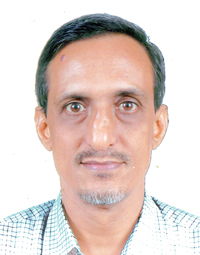 Recently, the Archbishop of New Delhi wrote calling for a year of prayer before the 2019 general elections in India. Jesudas Athyal comments on the fear and threat experienced by the minorities in India especially as a Hindu nationalist government is in power in an article in the National Catholic Reporter.
Recently, the Archbishop of New Delhi wrote calling for a year of prayer before the 2019 general elections in India. Jesudas Athyal comments on the fear and threat experienced by the minorities in India especially as a Hindu nationalist government is in power in an article in the National Catholic Reporter.
Re-examining Missiology in the New France
 Existing histories of the brief Franciscan Recollect mission to New France (1615–1629) tend either to overstate the assimilatory character of the Recollect missionary vision or to overlook their comprehensively political vision. Through a close re-reading of early Recollect sources in her Journal of Early Modern Christianity article, "Helping 'our Canadian brothers': Early Recollect Missiology as an Experiment in Christian Community, 1615–1629,“ Anicka Fast excavates a missionary vision for cohabitation between indigenous people and French settlers that, while assimilationist in some ways, also reflected deeply a conviction of human equality, a nascent understanding of the church as a political alternative to empire, and a willingness to learn from and adapt to indigenous cultures. The Recollects’ vision was shaped at every stage by their specifically Franciscan practice of poverty. This poverty predisposed them to critique mercantile interests in the colony, shaped their appreciation of indigenous traveling companions, and made them more prone to recognize Christian equality across cultures.
Existing histories of the brief Franciscan Recollect mission to New France (1615–1629) tend either to overstate the assimilatory character of the Recollect missionary vision or to overlook their comprehensively political vision. Through a close re-reading of early Recollect sources in her Journal of Early Modern Christianity article, "Helping 'our Canadian brothers': Early Recollect Missiology as an Experiment in Christian Community, 1615–1629,“ Anicka Fast excavates a missionary vision for cohabitation between indigenous people and French settlers that, while assimilationist in some ways, also reflected deeply a conviction of human equality, a nascent understanding of the church as a political alternative to empire, and a willingness to learn from and adapt to indigenous cultures. The Recollects’ vision was shaped at every stage by their specifically Franciscan practice of poverty. This poverty predisposed them to critique mercantile interests in the colony, shaped their appreciation of indigenous traveling companions, and made them more prone to recognize Christian equality across cultures.
Funding Sources and Philanthropic Priorities in Twentieth-Century American Mission
David Scott, BU alumnus and CGCM affiliate, recently published an article entitled "The Value of Money: Funding Sources and Philanthropic Priorities in Twentieth-Century American Mission" in Religions. Below is the description of the article:
At the turn of the twentieth century, Western missionaries and mission organizations sought to develop financial strategies that would facilitate the further expansion of the Western mission enterprise. Three such strategies emerged: an increasingly sophisticated, corporatized approach to fundraising by mission boards; faith missions that shifted the economic risks associated with fundraising from mission agencies to missionaries; and self-supporting missions that cultivated economic funding available in the mission field. Each of these strategies had different implications for power configurations in the mission enterprise and allowed the values and views of different groups to prevail. The board approach empowered mission executives and large donors. The faith mission approach empowered missionaries and supporters with a conservative theology. The self-supporting mission approach made missionaries arbiters among a variety of competing interests. This economic approach to the study of mission provides new insights into the complex and contested power arrangements involved in Western foreign mission that extend beyond those gained from traditional political and cultural analyses.
Sacred Children and Colonial Subsidies
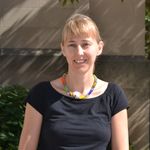 Anicka Fast, CGCM student affiliate, recently published an article entitled "Sacred children and colonial subsidies: The missionary performance of racial separation in Belgian Congo, 1946-1959" in Missiology: An International Review. Below is the description of the article:
Anicka Fast, CGCM student affiliate, recently published an article entitled "Sacred children and colonial subsidies: The missionary performance of racial separation in Belgian Congo, 1946-1959" in Missiology: An International Review. Below is the description of the article:
While most Protestant missions in Belgian Congo gladly accepted the colonial state’s offer of educational subsidies in 1946, a strong emphasis on church-state separation led the American Mennonite Brethren Mission (AMBM) to initially reject these funds. In a surprising twist, however, the AMBM reversed its position in 1952. Through archival research, I demonstrate that a major factor that led the AMBM to accept subsidies was the creation and institutionalization of a racially separate ecclesial identity from that of Congolese Christians. This was epitomized in the missionaries’ vision for a “white children’s school,” geographically separated from their work with Congolese. The enactment of white identity helped pave the way for the acceptance of subsidies, both by bringing the missionaries more strongly into the orbit of the colonial logic of domination, and by clarifying the heavy cost of failing to comply with the state’s expectations.
Korean Global Mission Leaders Forum
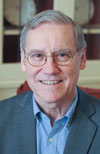 Dr. Jon Bonk, CGCM faculty associate, has been serving as the president of the Korean Global Mission Leaders Forum (KGMLF). KGMLF demonstrated a model of vigorous cross-cultural interaction and produced multilingual publications that address complex but overlooked issues bedeviling missions regardless of the sending or receiving country, mission society, or denomination involved.
Dr. Jon Bonk, CGCM faculty associate, has been serving as the president of the Korean Global Mission Leaders Forum (KGMLF). KGMLF demonstrated a model of vigorous cross-cultural interaction and produced multilingual publications that address complex but overlooked issues bedeviling missions regardless of the sending or receiving country, mission society, or denomination involved.
In February 10-14, 2011, a group of 48 men and women from around the world gathered at OMSC in New Haven to identify and tackle complex issues relating to financial, administrative, strategic and pastoral accountability practices and lapses in Korea. WEC, OMF, SIM, IBM, and SEND international were represented, along with other agencies whose ministries intersected with Koreans, Korean churches, and Korean mission societies. Major Korean sending agencies—both independent and denominational—all took part. The gathering produced the ensuing book (in Korean and English) Accountability in Missions: Korean and Western Case Studies.
The June 11-14, 2013 forum resulted in the publication of Family Accountability in Missions: Korean and Western Case Studies (OMSC Publications, 2013). In November 3-6, 2015 the third forum took place in Sokcho, South Korea, which resulted in the publication of the book Megachurch Accountability in Missions: Critical Assessment through Global Case Studies. In November 7-10, 2017, forum on "Migration, Human Dislocation and Accountability in Missions," was held, and the proceedings will be published as People Disrupted: Doing Mission Responsibly among Refugees and Migrants. Dr. Bonk is planning the fifth forum addressing the theme of "Missionaries, Mental Health, and Accountability in Church and Agency Support Systems" (June 10-14, 2019). The case studies for this forum will examine a range of issues and approaches relating to fostering and effectively restoring missionary mental health in contexts of ministry.